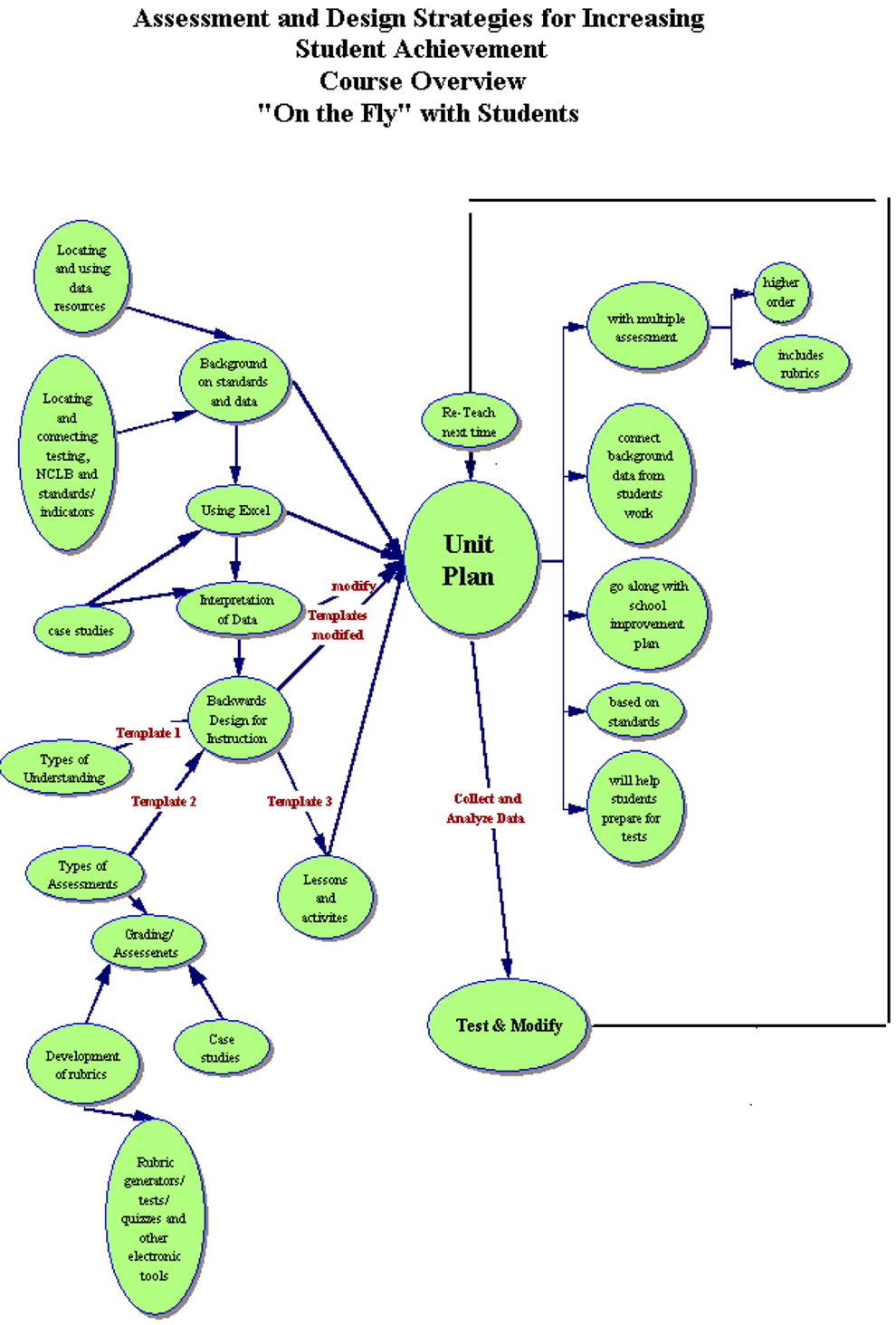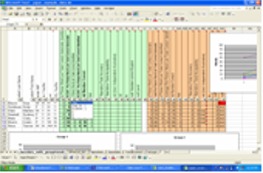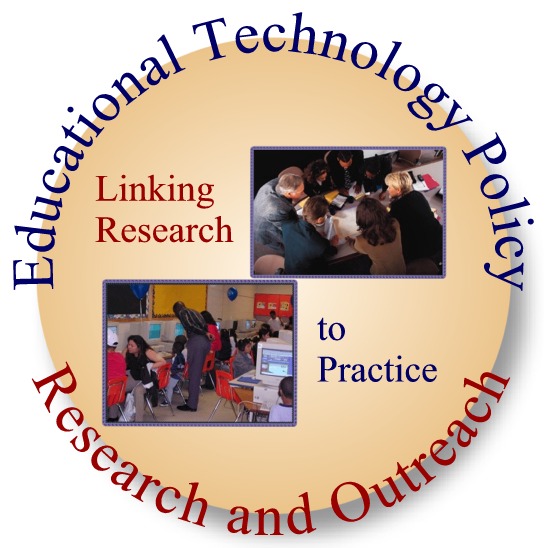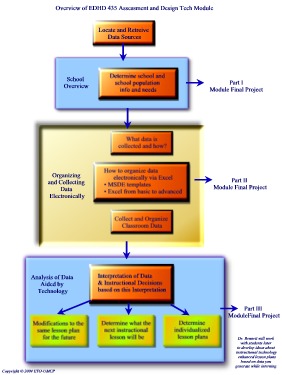 |
|
||||||||














EDHD435
|

Overview of Full Semester EDUC 476/698V Assessment and Design Strategies for Improving Student Learning: Utilizing Data with Technology Tools for Instructional Decisions |
Overview of EDHD 435 Module |

Example of Excel data entry and analysis |
|
Fall 2004 - 10:30-12:30
- October 4th, 2004 HW only to prepare for October 11th
- October 11th Computer & video lab Basement Benjamin Bldg.
- October 25th Computer & video lab Basement Benjamin Bldg.
- November 1st Computer & video lab Basement Benjamin Bldg.
- November 8th Computer & video lab Basement Benjamin Bldg.
- December 13th Final Project (Part I,II, and III) are due. Please send electronically to dpruitt@umd.edu
- December 16th 8-9:00AM Computer lab Basement Benjamin Bldg.
| Instructor: | Davina Pruitt-Mentle |
| Office: | 2127 Tawes |
| Phone: | 301-405-8202 |
| Email: | dpruitt@umd.edu |
| Website: | www.edtechpolicy.org |
| Office Hours: | By appointment |
Module Description:
As the gap between low and high achieving students continues to grow and the implementation of high-stakes accountability systems becomes the norm, the need for data to guide classroom decisions becomes increasingly important. Unfortunately, many practicing educators have limited experience in using data systematically to inform the planning and delivery of instruction. The density and range of available information contributes to the arduous task of effectively analyzing and applying assessment results to decisions about day to day instruction.
Data can be used not only to evaluate and track student performance but also to assess instructional effectiveness and various other factors that influence student learning. This module will address some of the common questions that educators have about data driven school improvement. What types of data should be collected? What types of data are available to improve instruction and, therefore,student learning? How might teachers collect data effectively with current technology applications? How might teachers use data for school improvement? What steps should schools take to improve their use of data?
This module specifically addresses Maryland Teacher Technology Standard (MTTS) IV. Assessment for Administration and Instruction: Use technology to analyze problems and develop data-driven solutions for instructional and school improvement and will address all three indicators:
- Research and analyze data related to student and school performance.
- Apply findings and solutions to establish instructional and school improvement goals
- Use appropriate technology to share results and solutions with others, such as parents and the larger community.
Participants will locate, access, retrieve, evaluate, and archive information pertaining to their school's and individual classroom assessment scores, state content standards, and performance assessment tasks, and design, test, and revise curriculum projects and assessment tools for use in your own classroom.
Module Objectives:
Emphasis will be placed on building skills and confidence in participants' abilities to:
- locate, explore and analyze state (MSDE) and other available data (i.e., MD Tech Inventory, Pew Internet and Life Project , Boards Panel);
- utilize "state" (MSDE) and national content standards and benchmarks;
- investigate and utilize specific technology tools (e.g., Excel) for organizing the data available on a district, school, and classroom levels;
- explore processes that facilitate the use of data in modifying instruction;
- explore common curriculum, assessment, and instruction practices that (a) promote and (b) may interfere with the cultivation of student understanding;
- examine a continuum of methods for appropriately assessing the degree of student understanding; and
- investigate approaches to curriculum and instruction designed to engage student's in inquiry and promote student learning.
| Educational Technology Policy, Research, & Outreach http://www.edtechpolicy.org// dpruitt@umd.edu |
 |
Copyright © 2009 ETPRO |


